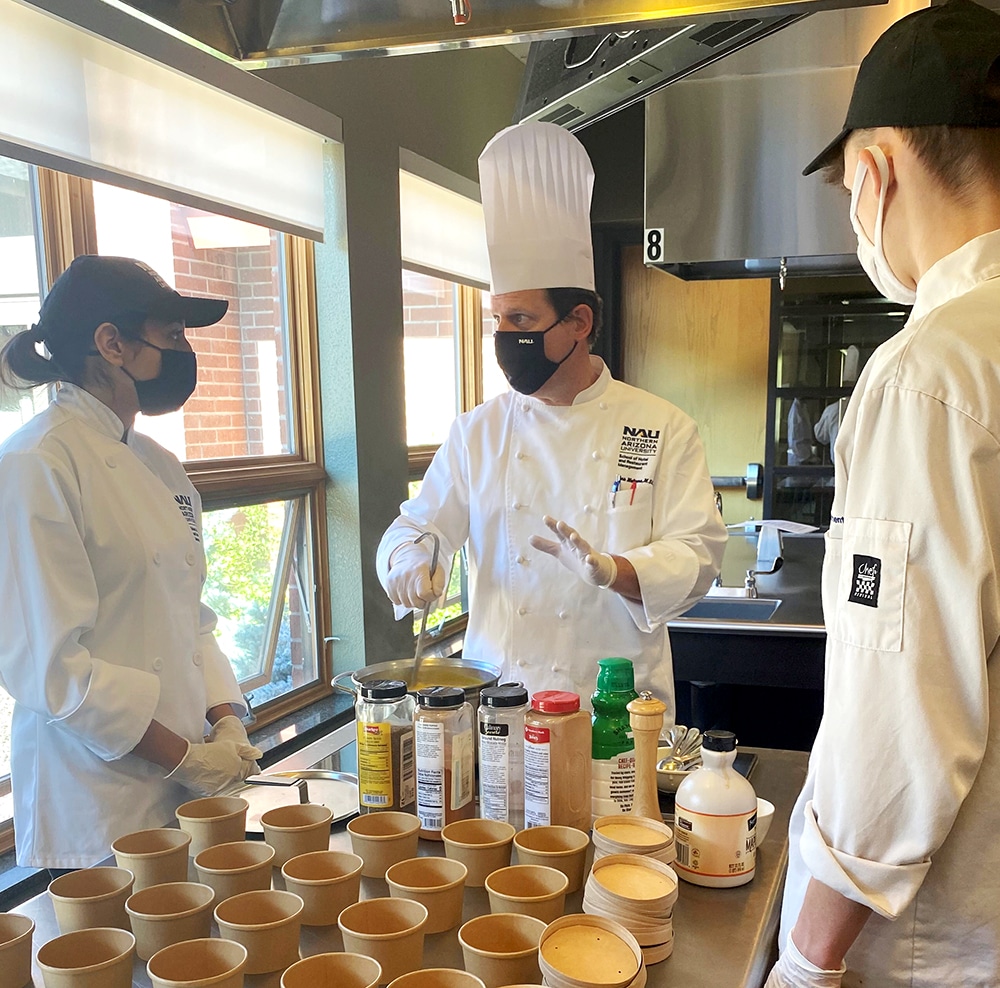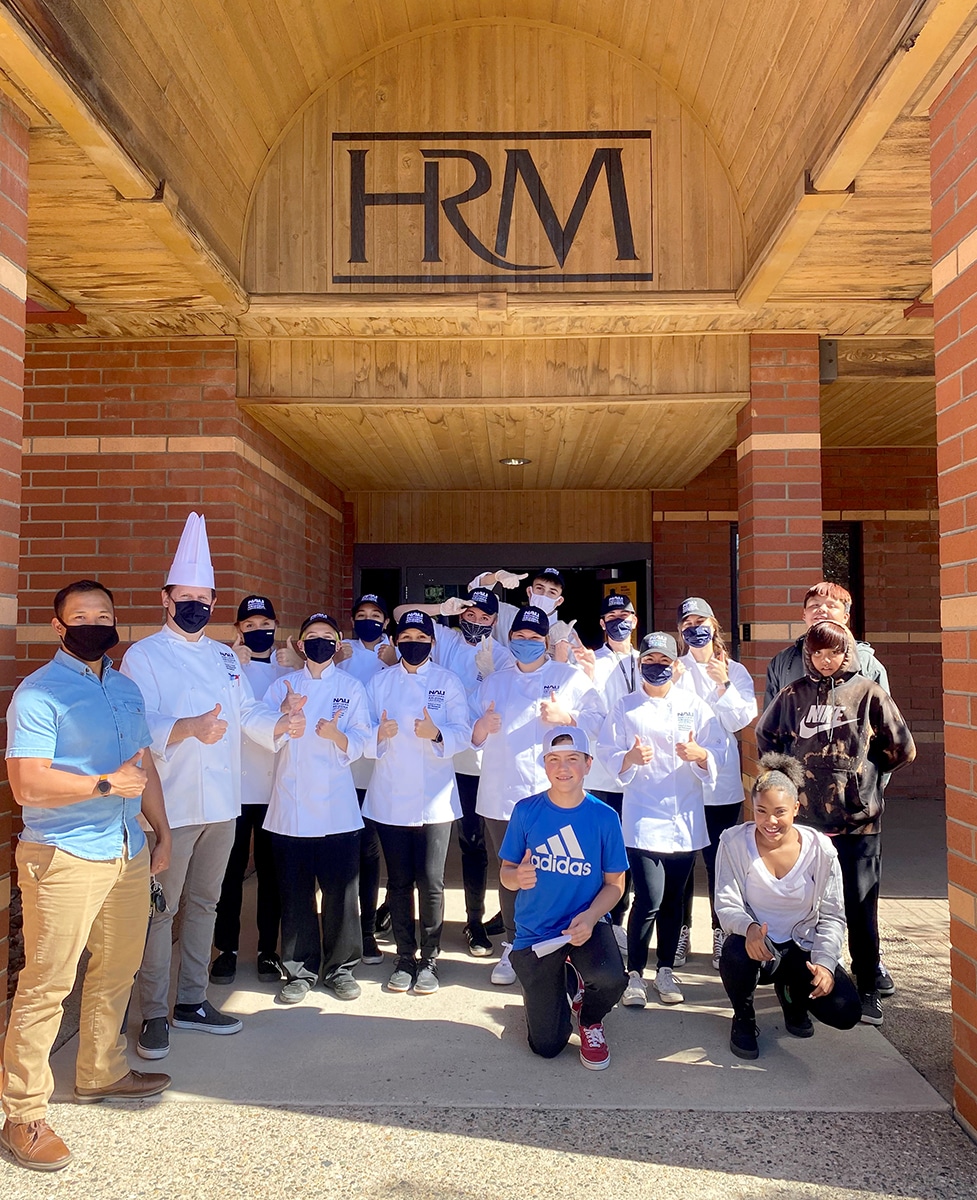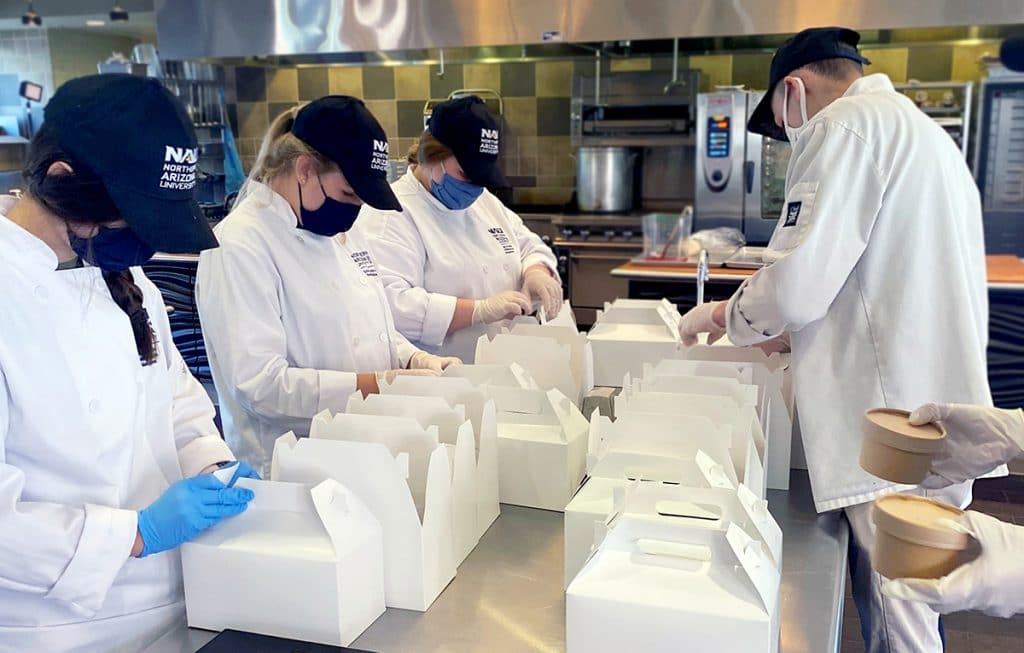In a normal year, students in Northern Arizona University’s Hotel and Restaurant Management (HRM) program spend two days a week in the demonstration kitchen. There, they get hands-on experience learning how to properly use knives, complement dishes with different seasonings and cook vegetables as delicious as cake. The students would then showcase the food they prepare in one of three tasting challenges throughout the year, where members of the community are invited to sample their delicious creations. This, however, is not a normal year.
Because of COVID-19, class sizes are limited, which means students now get one day a week in the kitchen. And the food showcases that would once draw dozens of people? Cancelled. But, like everyone learning how to navigate through this pandemic, so too is HRM.
In addition to taking advantage of the little time he does have with his students in the kitchen, senior chef lecturer and associate executive director Mark Molinaro has transitioned some of his teachings online and created a virtual culinary demonstration series. Not only is he changing the way he teaches, but also what he teaches.

“The pandemic provides a unique set of conditions that allows HRM to adapt our content to meet the needs of our students in order to prepare them for potential future pandemics,” he said. “We used to create an entire dining experience for our community tastings; they would take place in the HRM kitchen or the Choice Fireplace Lounge and include decorations, music and personal service. Now, we have adjusted in the same way the industry has, focusing on teaching our students how to pivot to delivery methods so they will have experience when they are leading.”
Embracing the pivot, the students had a thought: “Just because community members can’t come to our tasting showcases to enjoy our food, doesn’t mean we can’t ‘go’ to them.”
Molinaro and his students went to work. The first order of business? Deciding who should get the meals.
“We chose the Boys and Girls Club,” said HRM sophomore Lance Gomez, who worked as one of the two team leaders on the project. “Since this was the first time we worked together as a team, we were a bit all over the place with our planning and organization, but knew we wanted to donate the meals to a charitable organization.”
Throughout the week leading up to the meal distribution, the students found their groove. Different groups would take turns working in the demonstration kitchen, planning the meal and prepping ingredients.
“Most of the actual cooking happened the day of, so we set up different stations throughout the kitchen and broke off into different teams to put it all together in timed increments,” said Gomez, who was in charge of preparing rolls and mixing drinks.

In total, the students made 20 meals, consisting of fall squash soup with cinnamon and maple syrup; a mixed green salad with apples, dried cranberries and a goat cheese vinaigrette; warm ciabatta rolls; cranberry lemonade with mint; and a pumpkin iced cookie for dessert. The meals were packaged up in cardboard to-go containers for the children and their chaperones and passed off to Mark Cox, NAU alumnus and CEO of the Boys and Girls Club of Flagstaff.
“Our members are always excited about food, but this was an awesome opportunity and treat for them to try new fancy foods and flavors,” Cox said. “The kids loved everything—especially the pumpkin cookies!”
Through this experience, Molinaro hopes his students learn adaptability and how to enter situations with a “what can we do” mindset.
“This project is important not only because it gives back to the community, but also because it provides us the opportunity for a hands-on experience,” Gomez said. He plans to get an associate’s degree in culinary arts after graduation and eventually open his own restaurant. “It’s projects like this and learning how to adapt in a pandemic that will help me in my future career.”

(928) 523-5582 | carly.banks@nau.edu



